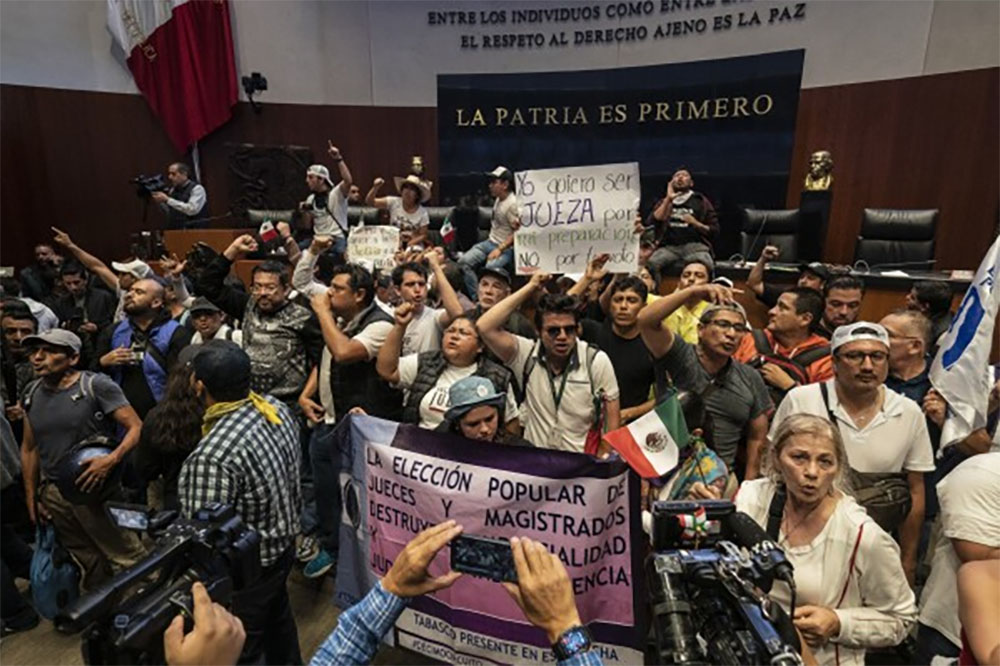
MEXICO ADOPTS JUDGE ELECTIONS DESPITE PROTESTERS STORMING SENATE CHAMBERS


Photo Credit: Getty Images Brazilian prosecutors have filed a lawsuit against Chinese electric...
Photo Credit: Getty Images Peru's political turbulence intensified Tuesday as Prime Minister...
Photo Credit: Getty Images Brazil's former President Jair Bolsonaro has been admitted to the...
Photo Credit: Getty Images Former Peruvian President Ollanta Humala has been sentenced to 15 years in...
Photo Credit: Getty Images Argentina has requested a $20 billion loan from the IMF as it struggles with...
Photo Credit: Getty Images Brazil's Supreme Court has ruled that Jair Bolsonaro must stand trial for...
Photo Credit: Getty Images In a move steeped in cultural nationalism and political defiance,...
Photo Credit: Getty Images Mexican President Claudia Sheinbaum has taken a decisive stance against U.S....
Photo Credit: Getty Images Imagine drinking water that comes straight from the clouds. In the...
Photo Credit: Getty Images Brazil's political landscape has once again been thrust into the...
Photo Credit: Getty Images A cryptocurrency endorsement by Argentine President Javier Milei has...
Photo Credit: Getty Images On Thursday, Mexico issued a warning to Google regarding its alteration of the...